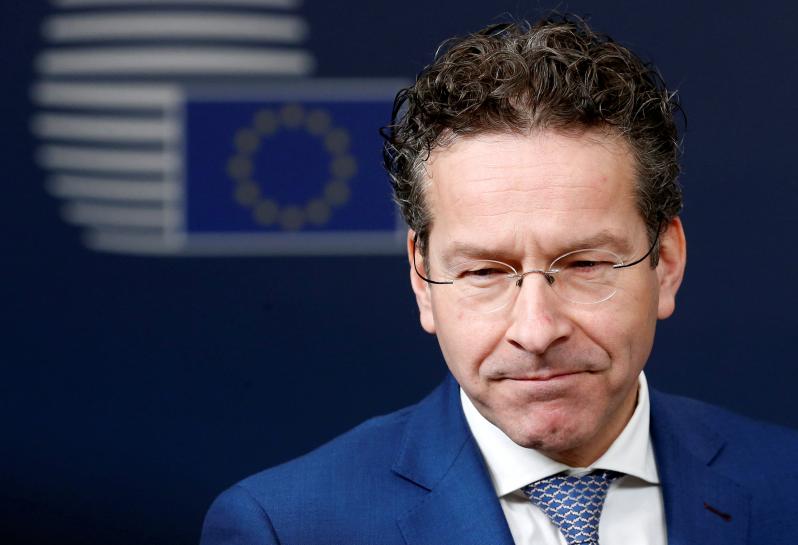
Jeroen Dijsselbloem could well lose his role as chair of the EU body coordinating euro zone policy after his party was routed in a Dutch election although there is a chance he could retain it even if he is no longer finance minister in a new coalition.
BRUSSELS Jeroen Dijsselbloem could well lose his role as chair of the EU body coordinating euro zone policy after his party was routed in a Dutch election although there is a chance he could retain it even if he is no longer finance minister in a new coalition.
While other euro zone finance ministers may seek the post, there is a lack of obvious contenders, particularly given that many governments will resist appointing a politician from the right because conservatives hold most other top EU jobs.
There has also been speculation that the Eurogroup could keep him on as chairman until his second 30-month term ends next January, even if he loses his national job.
Even that isn’t certain, although liberal Prime Minister Mark Rutte may struggle to retain Dijsselbloem in such a senior cabinet post after the Labour Party crashed from second to seventh place in preliminary results and lost more than three quarters of its seats.
Neither man commented on the matter directly on Thursday. Dijsselbloem is due to represent the Eurogroup at a G20 meeting in Germany on Friday and to chair the monthly meeting of the 19 euro zone finance ministers in Brussels on Monday.
Either way, he could remain the Netherlands’ finance minister for months yet if Rutte — who has made clear his appreciation of Dijsselbloem’s work — struggles to put together a new coalition. The premier’s party lost seats and euroskeptics finished in second place.
A future coalition might also cherish the added influence that keeping Dijsselbloem as Eurogroup president gives. In that case, it might opt to leave him in post while replacing the junior minister from Rutte’s party that currently speaks for The Hague government within the Eurogroup while Dijsselbloem is chairing with a heavyweight new figure.
POPULAR
Dijsselbloem, 50, has been popular in the Eurogroup.
He has balanced a background on the left with support from conservative Wolfgang Schaeuble, who wields Germany’s power in the euro zone and has set strict terms for Greece and other bailed out states.
Eurogroup rules do not stipulate the president must be a serving finance minister, though senior euro zone officials say that should generally be the case and doubt Dijsselbloem could secure another term without retaining his national portfolio. Longer term, there is talk of establishing a full-time presidency with its own staff, but that is not yet agreed.
Party politics and a quest for influence by governments will play a role in any choice of replacement.
The Eurogroup chair is one of four political presidencies of European Union institutions governing the euro currency.
Following a shift at the European Parliament in January and the reappointment last week of Donald Tusk at the European Council of national leaders, all three others, including the executive European Commission, are held by the center-right.
That complicates the longstanding ambition of conservative Spanish Finance Minister Luis De Guindos to replace Dijsselbloem and might improve the prospects of Slovak leftist Peter Kazimir.
The latter said in January that he believed Dijsselbloem should serve out his term, however the Dutch voted. De Guindos told reporters on Thursday he would not speculate on the job.
Other center-left ministers are Malta’s Edward Scicluna and France’s Michel Sapin, who faces elections in May and June.
Portugal’s center-left government, held up by some in the euro zone as a example of successful management of a bailout, is represented on the Eurogroup by Finance Minister Mario Centena, a politically independent professional economist.
(Additional reporting by Anthony Deutsch in Amsterdam and Paul Day in Madrid- Writing by Alastair Macdonald- Editing by Catherine Evans)
 0 comments
0 comments





